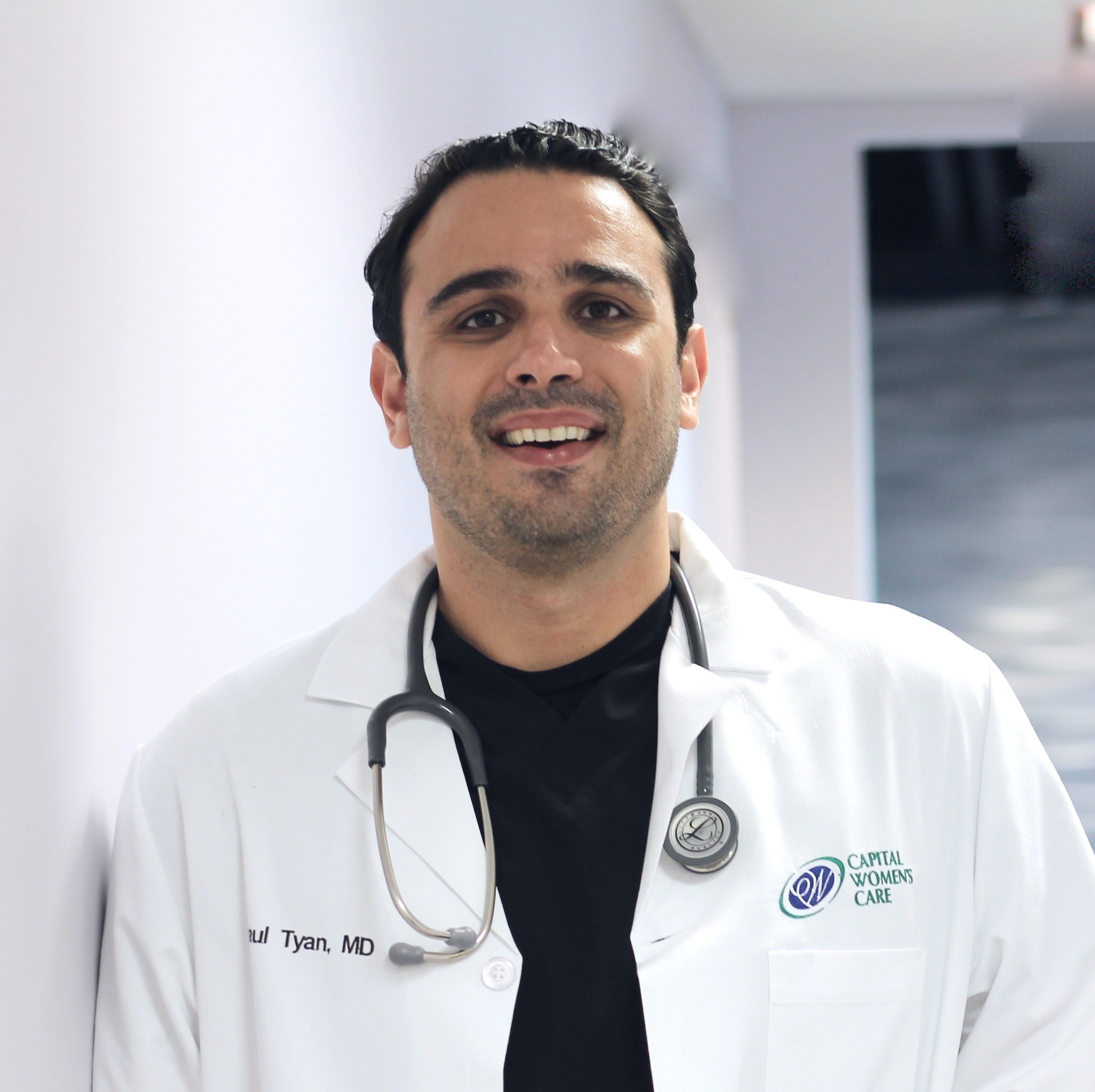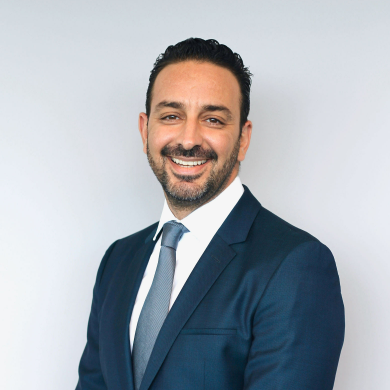
Dr. Paul Tyan
Dr. Paul Tyan, M.D.
Dr Paul Tyan – Endometriosis Specialist, Gynecologist, Minimally Invasive Gynecologic Surgeon
Summary: Dr Paul Tyan is a leading endometriosis specialist and minimally invasive gynecologic surgeon based in Arlington, VA. Known for his patient-centered approach and deep expertise, Dr. Tyan brings clarity and compassion to those navigating the complexities of endometriosis. Patients searching for experienced care often turn to Paul Tyan, or Dr Paul Tyan, for his commitment to evidence-based, individualized treatment plans. With a strong foundation in the latest research, including genetic and epigenetic insights, Dr Tyan endometriosis care emphasizes early intervention and holistic pain management.
He specializes in excision surgery and integrates hormonal therapies, physical therapy, and medication tailored to each patient’s needs. Whether you’re exploring treatment for deeply infiltrative endometriosis or managing persistent pain after surgery, Dr. Paul Tyan offers thoughtful, comprehensive support. With Dr Tyan endometriosis care, patients receive both advanced clinical knowledge and the compassionate guidance they deserve.
City: Arlington, VA, USA
Philosophy: In its most basic definition, endometriosis is the presence of endometrial cells (that form the inner lining of the uterus) outside the uterus. In some patients, those ectopic cells can produce an inflammatory response that is at the origin of various cascades that can lead to pain or scarring. There are multiple proposed theories about the origin of endometriosis. The only certainty is that the origin of endometriosis is multifactorial.
The retrograde menstruation or implantation theory is one of the initial principles of the pathogenesis of endometriosis;however, it has been challenged as the single cause for several years, as evidenced by the occurrence of symptomatic endometriosis in premenarchal and postmenopausal women. Also, by the fact that nearly all patients will have retrograde menstruation, but not everyone has endometriosis.
Most recently, we have had significant advances in the genetic and epigenetic theory of endometriosis. The clonality of endometriosis lesions and the cancer-driver genes that have been identified in deeply infiltrative endometriosis lesions shed light on the genetic component of the disease. Recent work on the epigenetic factors linked to external conditions affecting pluripotent cell behavior in the setting of endometriosis is a promising field set to unveil exciting information.
Keeping up to date with the intricacies of the pathogenesis of endometriosis is crucial to my clinical practice. Many patients will be counseled over the years that surgery is unnecessary at that blocking the menstrual cycle or hormonal suppression is sufficient for “curing” endometriosis. Explaining to patients the complex nature of the disease and the necessity of early intervention, especially in the deeply infiltrative endometriosis subtype, could be a crucial factor in decreasing morbidity and improving the quality of life of my patients.
What type of surgery do you perform for endometriosis?:
Excision
Medication: I recommend a combination hormonal contraceptive (birth control) for post-surgical suppression. In cases where a combination option is contraindicated, I recommend a progesterone-only option.
I recommend treatment with an SSRI, SNRI, or GABA-Analog for patients with central sensitization due to chronic pain secondary to endometriosis.
For patients with pelvic floor tension myalgia, I recommend physical therapy, various muscle relaxers, and trigger point injections or nerve blocks in warranted conditions.
Treatment plans tend to be individualized based on the patients’ presenting symptoms, surgical management, and postoperative course.
Approach to Persistent Pain After Surgery: For some patients, endometriosis excision is sufficient for complete symptomatic relief. However, some patients will still have symptoms after surgery. It is crucial to counsel patients before surgery that endometriosis excision is only one aspect of a comprehensive management plan that should involve central and peripheral pain management, pelvic floor physical therapy, and dietary modification.

Dr. Nicholas Hazen
Dr. Nicholas Hazen, M.D.
Dr Nicholas Hazen – Endometriosis Specialist, Gynecologist, Minimally Invasive Gynecologic Surgeon
Summary: Dr Nicholas Hazen MD, a renowned endometriosis specialist and gynecologist based in Washington DC, USA, is dedicated to providing personalized care for women dealing with endometriosis. Dr Hazen understands that the disease process is still not fully understood, and he combines scientific evidence with personal experience to tailor treatment for each patient. When surgery is required, he favors an excisional approach with wide margins to ensure the best possible outcomes.
In managing endometriosis, Dr Nicholas Hazen MD uses a range of treatments, including progestational agents, GnRH antagonists, NSAIDs, and gabapentinoids. He emphasizes a holistic approach, recognizing the importance of diet and mental health in managing pain. For patients experiencing persistent pain after surgery, Dr. Hazen customizes treatment plans to meet each individual’s needs, working closely with them to extend pain relief and improve quality of life.
City: Washington DC, USA
Philosophy: I believe there is still more that is unknown than known about the disease process of endometriosis. Quality scientific evidence supports multiple current etiologies, suggesting that endometriosis is not a simple process with a simple solution. My approach to surgical treatment is based on my most up to date understanding of the disease process, in combination with my personal experience caring for patients along their unique health journeys. When surgery is warranted, I favor an excisional approach with wide margins to include both visible and surrounding microscopic disease. In my experience, this leads to the best outcomes for patients.
Medication: The choice of medication for the management of endometriosis is an extremely individual one. Finding the best fit for a patient requires reviewing both their current status and past history very thoroughly, including their previous experiences, the evolution of their symptoms, and their individual management goals. In my practice, I most commonly prescribe progestational agents but often recommend GnRH antagonists. The current literature shows that suppression results in decreased return of pain and symptoms following endometriosis surgery, and I often recommend and manage post-surgical resection hormonal suppression. I use non-narcotic medications such as NSAIDS for the treatment of pain and gabapentinoids and SNRI/SSRIs for central sensitization. I believe that diet and mental health also play an important role in the body’s pain response to endometriosis.
Approach to Persistent Pain After Surgery: I believe there is no single “right” approach to addressing continued pain after surgery. Every patient is different, and so is each surgery, so it is critical to individualize treatment plans based on a patient’s unique needs. It has been widely shown that for the majority of patients, the pain relief experienced from surgery is unfortunately only temporary. In the continued care of my patients, my goal is always to work together to extend pain relief as long as possible and minimize impacts and disruptions to the patient’s life going forward.

Dr. Maria Victoria Vargas
Dr. Maria Vargas, M.D.
Victoria Vargas – Gynecologist, Minimally Invasive Gynecologic Surgeon
Summary: Victoria Vargas MD, also known as Dr. Vargas OBGYN, is a skilled gynecologist and minimally invasive gynecologic surgeon based in Washington, D.C. Specializing in endometriosis, Dr. Maria Vargas combines a deep understanding of the disease’s complex nature with a patient-centered approach to care. She emphasizes the multifactorial origins of endometriosis, incorporating the latest research, including the Mulleriosis theory, to offer individualized treatment options.
Dr. Vargas provides comprehensive care, including hormonal therapies like combined oral contraception and the levonorgestrel-releasing IUD, tailored to each patient’s needs. She also focuses on managing persistent pain post-surgery, offering non-narcotic solutions such as nerve blocks, acupuncture, and pelvic floor physical therapy. Whether through lifestyle recommendations or advanced surgical techniques, Dr. Vargas helps her patients improve their quality of life with personalized, holistic care.
City: Washington DC, USA
Philosophy: Endometriosis is a complex disease and its etiology appears to be multifactorial. Currently, Mulleriosis seems to be the most accepted theory of origin. Unfortunately, we still lack understanding about the full spectrum of the disease, which includes a self-sustaining, highly inflammatory environment with the capacity to promote its own nerve and blood supply. There seems to be a hereditary component, and increasingly, we are defining somatic mutations common to endometriosis lesions. Given the many unknowns regarding endometriosis, I focus my practice on ensuring patients understand the complexity of the disease and try to develop an individualized approach based on each patient’s preferences and circumstances.
Medication: Depending on my patient’s preferences and needs, I offer hormonal suppressive therapy, including combined oral contraception, oral progestin medication, and the levonorgestrel-releasing IUD. I typically recommend extended-cycle dosing or continuous dosing of oral medications to achieve amenorrhea. In some cases, when patients don’t have sufficient improvement with hormonal suppression or when they don’t tolerate or are opposed to hormonal suppression, I may also recommend NSAIDs, gabapentin, or SNRIs.
Approach to Persistent Pain After Surgery: I bring up the possibility of residual pain before the surgery takes place so patients understand that there may be ongoing treatment beyond the recovery from surgery. I follow patients closely after surgery to ensure that they are able to achieve a maximal improvement in quality of life. If residual pain is present, I consider the possibility of co-morbidities, such as pelvic floor dysfunction and painful bladder syndrome. When appropriate I refer to my colleagues in pelvic floor physical therapy, pain management, and urology. I do promote a focus on non-narcotic options for residual pain, such as nerve blocks, trigger point injections, acupuncture, and TENS therapy. I also encourage mindfulness and meditative practices. I utilize hormonal suppressive therapy when appropriate as well. Rarely, I discuss second-look surgery as an option. I find that the vast majority of my patients achieve a positive outcome with this approach.

Dr. Nadim Hawa
Dr. Nadim Hawa, M.D.
Dr Nadim Hawa – Endometriosis Specialist, Minimally Invasive Gynecologic Surgeon
Summary: Dr Nadim Hawa is an experienced endometriosis specialist and minimally invasive gynecologic surgeon based in Leesburg, VA. Known for his compassionate and individualized care, Dr. Hawa is committed to helping patients find lasting relief from endometriosis. Whether you’re searching for Dr Hawa OBGYN or learning more about Dr Hawa endometriosis expertise, his approach combines surgical precision with long-term support.
Dr Hawa believes endometriosis has diverse origins, which is why he tailors treatment plans to each patient’s specific condition. While medications may ease symptoms, he emphasizes that they don’t address the root of the disease. Instead, he focuses on complete excision surgery and often integrates pelvic floor therapy to improve outcomes. As both a skilled surgeon and dedicated partner in care, Dr Nadim Hawa offers a comprehensive approach to managing endometriosis with the goal of restoring quality of life.
City: Leesburg, VA, USA
Philosophy: Multiple factors. Combination of in Sito development and endometrial transplantation. I do not believe there is only one type of endometriosis. Different origins hence different differentiation, behavior, and clinical impact. Same as fibroid. Why you have one solitary fibroid vs the bag of marbles of a uterus. Different gene expression and different behavior.
Medication: Medication and hormonal suppression serve only to relieve symptoms but not treat the disease. By stopping the dynamic motion of the uterus with suppression, you limit the superficial peritoneal inflammation and cause symptomatic relief, but you will not affect the deep lesions. since they produce their own estrogen and pro-inflammatory mediators. .I use IUD and usually insert intraoperatively after the excision surgery if the patient e desires birth control. GnRH agonist/antagonist are harmful and I do not use them
Approach to Persistent Pain: Surgery alone is not enough. Pelvic floor therapy is as important as surgery, for long term recovery.
A second excision is usually advised.

